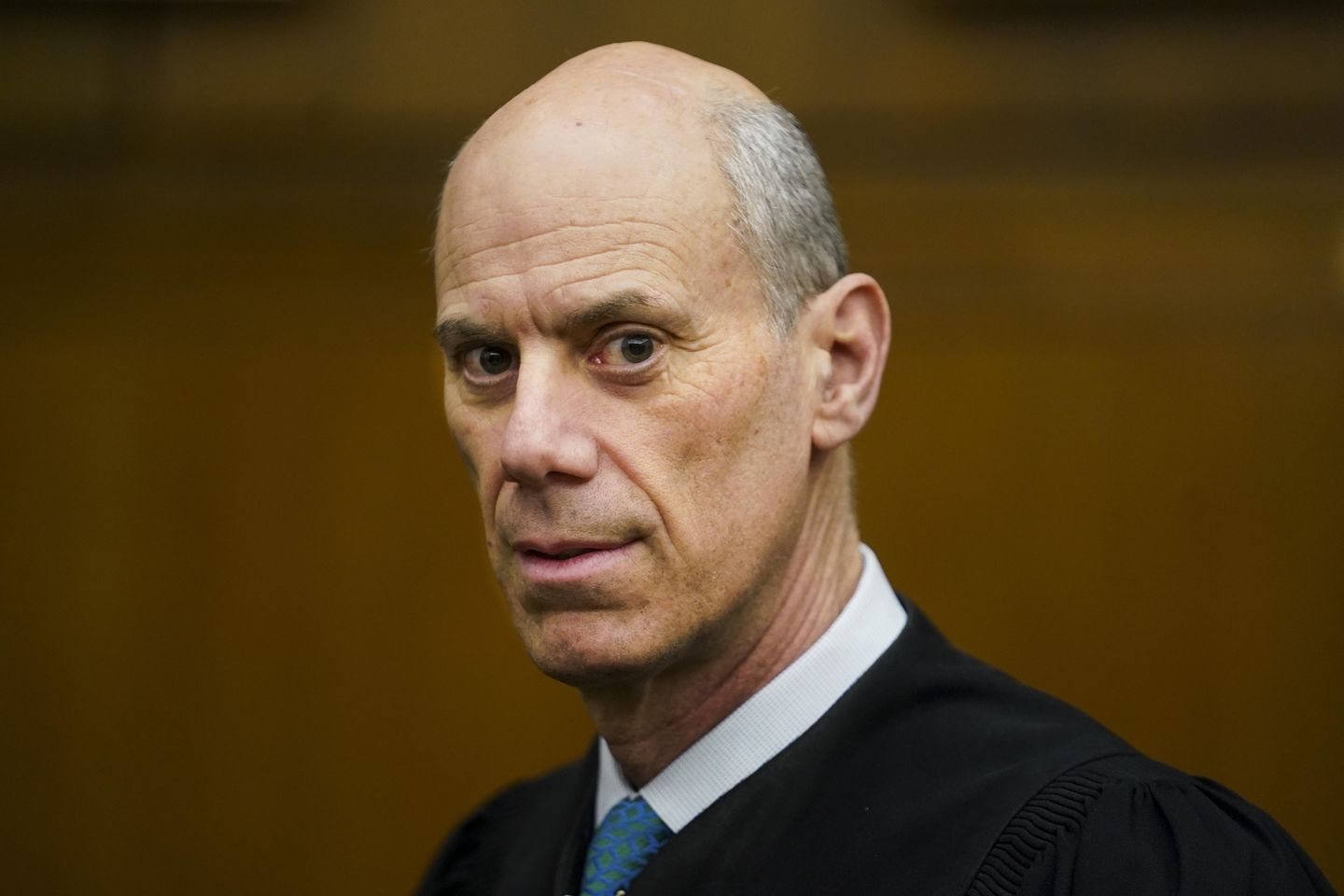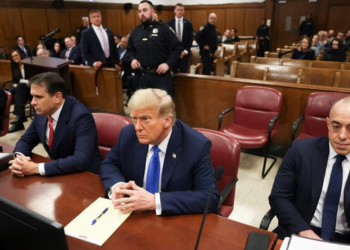
One appeals court judge said the administration treated some illegal immigrant deportees worse than the U.S. treated Nazis. A district judge scorned the president for acting like a “king” or “dictator.” Still other judges have accused the president and his team of racism and “animus” toward transgender persons.
The lectures come as the judges attempt to bat down Mr. Trump’s expansive agenda early in his second term.
He’s given it right back, calling for one judge to be impeached, asking that another be booted from hearing his cases and filing an ethics complaint against a third judge.
Josh Blackman, a professor at South Texas College of Law, said it’s become a terrible cycle where Mr. Trump’s zealous rhetoric prods judges to overreact.
“And in turn, when judges overreact, Trump amps up his rhetoric,” Mr. Blackman said.
He said judges, the branch of government set above the political fray, must do better.
“Judges should resist the temptation and stay in their lane. Lecturing Trump is not an effective use of the judicial power,” Mr. Blackman said.
Judge Ana Reyes has been one of the more energetic jurists in her badgering of the president and his lawyers.
During one hearing, she questioned whether Jesus would have backed Mr. Trump’s proposed limits on transgender troops.
“What do you think Jesus would say to telling a group of people that they are so worthless, so worthless that we’re not going to allow them into homeless shelters? Do you think Jesus would be, ‘Sounds right to me’? Or do you think Jesus would say, ‘WTF? Of course, let them in?” she told the lawyer.
She then played a game of hypotheticals where she told the lawyer, who earned a law degree from the University of Virginia, to sit down because graduates of that school were “liars.” Her point seemed to be to demonstrate the harm of categorical stereotypes.
The Justice Department filed a formal complaint about Judge Reyes’s courtroom “misconduct.”
The department also asked Judge Beryl Howell to boot herself off a case because of “hostility” to Mr. Trump.
Judge Howell said Mr. Trump sees himself as a “dictator” or “king” in a ruling barring him from firing a member of the National Labor Relations Board. It’s a theme she’s touched on even before Mr. Trump won his second term.
Then there’s Circuit Judge Patricia Millett who, in a case involving Mr. Trump’s use of the Alien Enemies Act to deport Venezuelan gang suspects to El Salvador, said “Nazis got better treatment” during World War II.
Ilya Shapiro, senior fellow and director of constitutional studies at the Manhattan Institute, said that some judges see themselves as the “judicial resistance in a sense” and that the judges see what the administration is doing as beyond the pale and they must stop it.
But Elliot Mincberg, a senior fellow with People For the American Way, said the judges are trying to uphold principles of separation of powers, and not exercise improper judicial activism.
“Firm opinions by judges are sometimes appropriate when, as here, we see direct challenges to fundamental legal and constitutional principles, like birthright citizenship. The right’s wholesale demands for impeachment and similar conduct are improper,” he said.
Judges, for their part, say they’re facing unprecedented levels of public hate, which they largely blame on Mr. Trump, who complains about “crooked judges.”
He called one, Judge James Boasberg, who was also involved in the Alien Enemies Act case, a “Radical Left Lunatic of a Judge, a troublemaker and agitator who was sadly appointed by Barack Hussein Obama.”
Mr. Trump’s fans on social media have adopted his anger — and courts say some take it further.
Judge John Coughenour, the first to block Mr. Trump’s attempt to limit recognition of birthright citizenship for children of illegal immigrants, said he was the victim of a swatting attack, in which someone made an emergency services call that sent authorities rushing to his home expecting to find an intruder.
Judge Robert Lasnik, a colleague of Judge Coughenour’s on the federal court in western Washington, told the Northwest News Network they’re seeing an unprecedented “volume of threats.”
He said U.S. Marshals are providing safety training for court employees, such as not wearing ID badges that would identify them in public.
Part of Mr. Trump’s difficulty with the courts is the abundance of Democratic appointees who have gotten the cases.
The Washington Times’ database of cases challenging the new Trump administration contains 212 cases where a federal district judge has already been assigned. Of those, 65 cases are being handled by Obama judges and 61 by Biden judges. Just 35 are Trump judge cases.
Another 24 are being heard by Clinton judges, 14 by George W. Bush appointees, 12 by Reagan appointees and one by a George H.W. Bush appointee.












